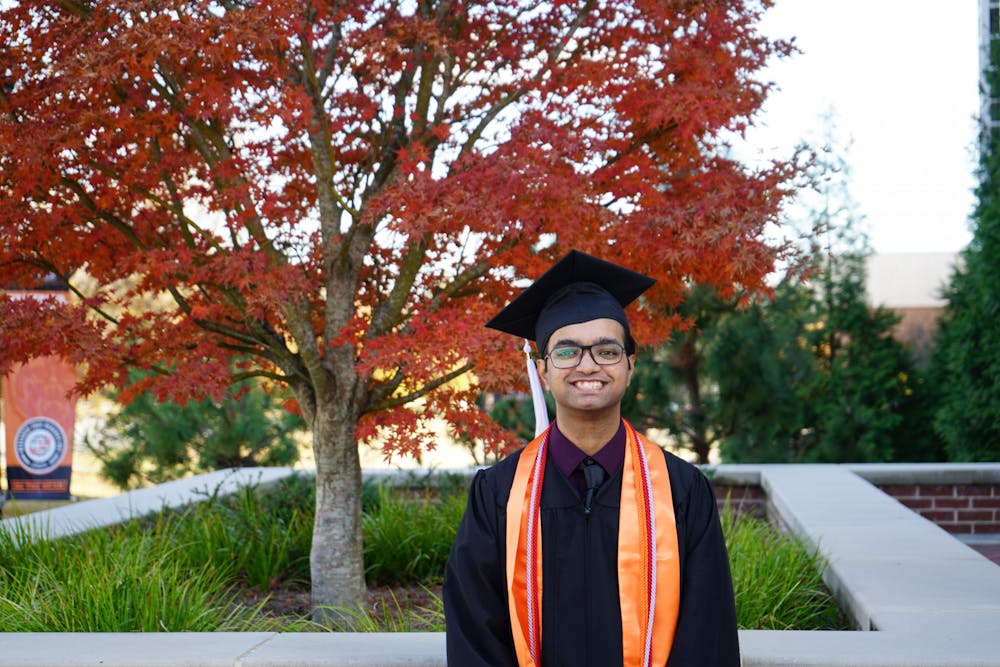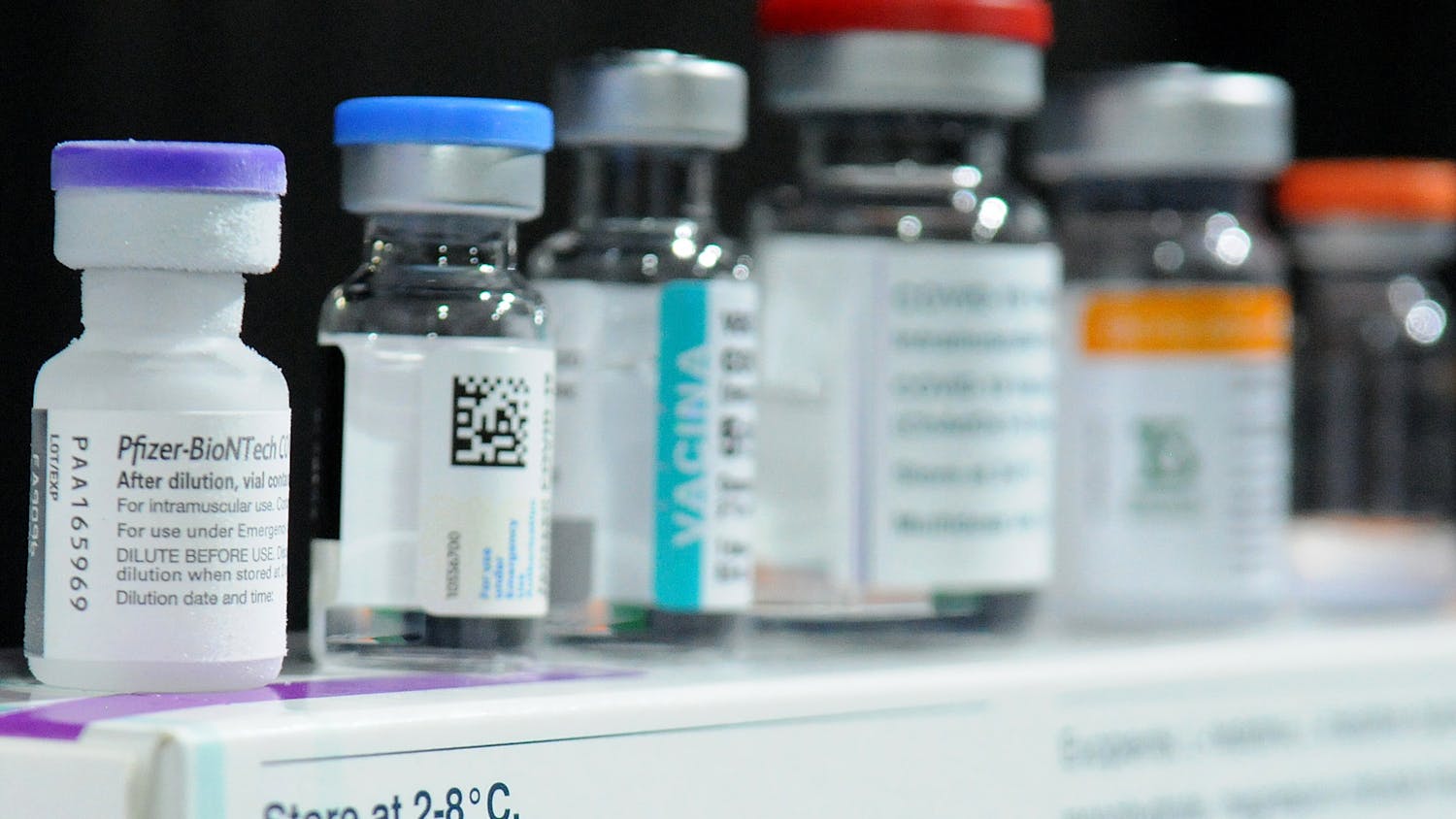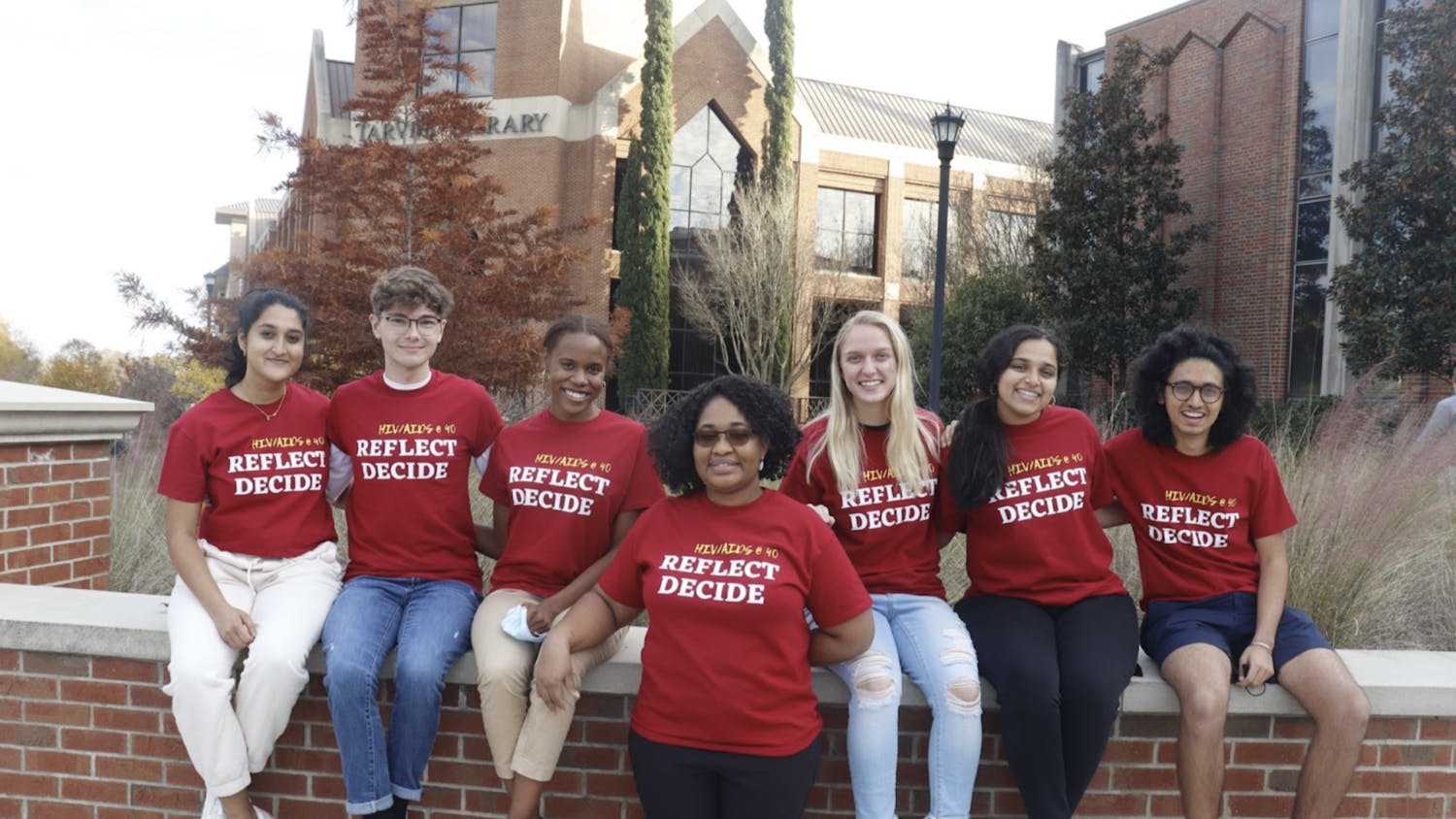In 2019, life for Bhavan Patel was that of the average Mercer student. He was a soon-to-be molecular biology and biochemistry graduate with aspirations of becoming a doctor, and he spent most of his time doing homework and hanging out with friends.
He enrolled in the Patienthood Internship Program for the fall semester, which allows pre-medical students to serve as practice patients for first-year medical students. The experience was unique to Mercer, which meant that students in this course were set to gain some important skills to take with them to medical school and beyond.
Little did Patel know that entering this program would change his life for good.
"I and 14 other students would go to Mercer Med every Tuesday, once a week," Patel said. "We would sit in on their lectures in Mercer Med, and after they're done with the lecture, we would essentially act as patients for those students practice on."
Patel recalls that most of the tests involved routine tests, such as gathering weight, temperature and blood pressure. One day, they practiced manually recording blood pressure.
"So the students started measuring my blood pressure, and it kept rising after each student did it," he said. "At one point, it was 182/127."
According to the Centers for Disease Control and Prevention, a normal adult blood pressure is lower than 120/80 mmHg.
The next day, he went to see a doctor. When his blood pressure was still high, the doctor said Patel may have some sort of kidney issue.
After a week-long process of various tests, Patel learned that he had stage five chronic kidney disease.
"That was quite a shock," Patel said. "I was walking around campus, doing my homework, going to classes, hanging out with friends, and the next thing I know, it was like, hey, something's really wrong, and I didn't even know about it."
Once he was able to get an appointment with a nephrologist, he learned he was in worse shape than he originally thought.
"They said, 'You shouldn't be walking, you should be in the hospital right now,' because my health was deteriorating at a rapid rate. And so they sent me to the hospital," Patel said.
Halfway through the fall semester, Patel was forced to drop out of Mercer to begin treatment.
"(I) was at, like, 10% kidney function," he said. "So it was really kidney failure at that point, and nothing was improving. So the doctors recommended that I should be placed on dialysis because there was no other option at that point besides kidney transplant."
Dialysis is a process in which blood is "cleaned" by removing waste, keeping a safe level of chemicals in your blood and helping to control blood pressure, according to the National Kidney Foundation.
Being placed on the United Network for Organ Sharing (UNOS) kidney transplant list involves testing and evaluation, and it is not an immediate process. A kidney transplant candidate's place on the list is determined by a variety of factors, including blood-type, time the patient has had kidney failure, age and more. Patel was placed on the transplant waitlist by Emory University Hospital in December 2020.
"A couple of people have tried to donate, but it just hasn't worked out for one reason or another," he said.
Most people looking for a kidney stay on the UNOS list for 3 to 5 years, but some could be waiting for even longer.
Patel, however, wants to continue his journey to become a doctor. He finished his undergraduate degree at Mercer during summer 2021.
"I want to become a doctor that works to serve the same community that has been there for me," a post to Patel's Instagram says. "I have applied to many medical schools and am waiting to hear back, unfortunately, this machine of mine cannot come along."
Patel must spend nine hours each day hooked to his dialysis machine at home and take many medications to "function normally," he says.
"For now, all I can do is wait and hope," the post says.
After his friend suggested he make his kidney search public, Patel made a post to Instagram with the help of his sister explaining his story. Since it was posted Monday, it has received over 1,600 likes and has been shared by many Mercer students.
"I was not expecting the outcome that I got, but it was crazy, you know, in a good way," he said.
Patel's hope is that someone eligible to be a donor will see the post and reach out. At that point, the transplant process could begin.
To donate a kidney directly to Patel, the candidate would have to match his blood type, which is O+. That means a donor could only have a blood type of O- or O+. However, if Patel finds a good candidate for kidney donation but they aren't a perfect match, Emory can find another incompatible pair to ensure both pairs get a good match.
"They can do all four operations at the same time," Patel said. "So instead of saving one life, you get to save two lives at the same time."
Patel is still looking for a kidney, but he says he is grateful for the response he has gotten from his post.
"Thank you for everyone's support and kind words," he said. "It means more than I can express in words. Really gives me the support to carry on. Thank you for everything."
Those interested in the transplant process can read more on Emory Transplant Center's website or begin a survey to see if they would be eligible. Patel has also listed his phone number on his Instagram post for anyone who wishes to contact him about the process.
Mary Helene Hall ‘23 is a journalism and women’s and gender studies student who has worked for The Cluster throughout her time at Mercer. She has held internships at The Atlanta Journal-Constitution and AL.com, where she covered a variety of topics including politics, crime and culture.





